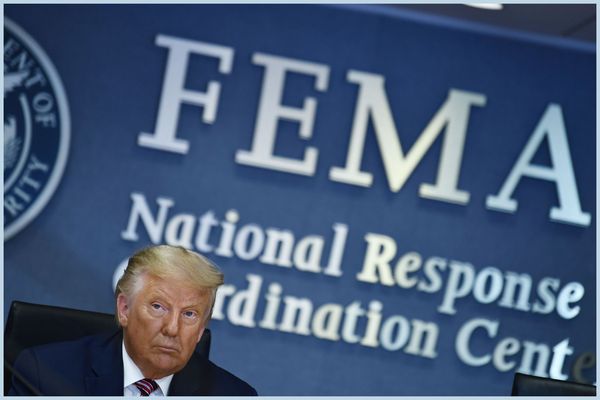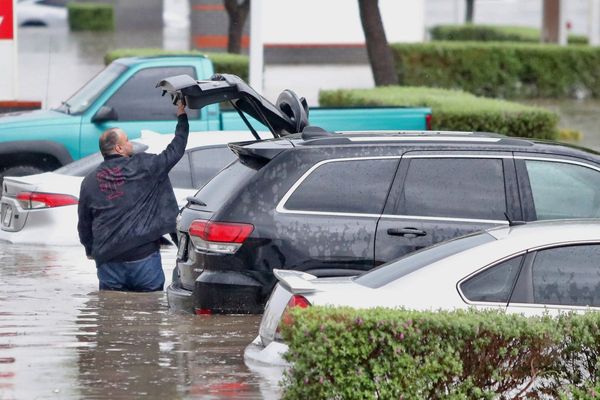Mayor Tom Tate says he does not remember whether he offered his support for a religious ideology that seeks to influence government according to evangelical beliefs.
Last week video emerged of Mr Tate's long-term spiritual adviser Sue Baynes stating that the Mayor's "chin dropped" when she advocated for the Seven Mountains Mandate and that he told her "I want this, I want you to help me do this".
The Seven Mountains Mandate is an evangelical religious ideology that originated in the United States, which seeks to assert influence or authority over seven spheres of society, including government, church, family, business, education, arts and entertainment, and media.
Mr Tate said "I don't recall" when asked whether he expressed support for Ms Baynes' template to turn the Gold Coast into a "kingdom of God" about 11 years ago.
"If someone's got a good idea, I will acknowledge it and go for it," he said.
Ms Baynes, who described the Gold Coast's arts precinct HOTA as a "demonic stronghold", was hired by council as a pastoral adviser last month.
Meanwhile, councillor Glenn Tozer said "fringe" religious views should not be considered mainstream and has called for a respectful and informed discussion.
Making 'disciples'
In video posted online, US-based Seven Mountains proponent Lance Wallnau stated that "if you want to see freedom economically or freedom culturally or freedom politically, you have to honour God".
"The qualitative assignment we have is to actually transform nations," he said.
While explaining the Seven Mountains Mandate in a 2019 podcast, Ms Baynes said that followers should "make disciples not only of people but to make disciples of systems and structures and effectively the nation".
"We really feel that the next four years are going to be the accelerator push down," she said when speaking about the upcoming 2020 council elections.
"There's been a lot of foundational stuff in the last eight years but we've got another four-year window now that we believe God is just going to highlight a lot of the stuff we've been seeding.
"That's my heartbeat — bringing God's kingdom so that the kingdoms of the world will actually become under the rulership of Jesus and his reign forever."
'Private views are private'
While Ms Baynes has publicly advocated for the Seven Mountains Mandate on multiple podcasts and online videos prior to being hired as a council adviser, Mr Tate said such views should now be considered a private matter.
"We've got 14 councillors," Mr Tate said.
"My point of view is when I sit there and listen, they're all advisers, I don't look at their private views on what they did before they were councillors.
Mr Tate said Ms Baynes' role in council is to link local government with church efforts on social issues such as domestic violence and homelessness, and "to escalate that up through the Mayor's safety task force".
"Outcome is what we want for the people who need help," he said. "That's my focus."
Mr Tate said council employees could seek spiritual advice from Ms Baynes "if they want to".
'Unhelpful' commentary
Mr Tozer said the "the focus of council, in my personal view, should be to help community-minded people to serve their neighbourhoods selflessly and with altruistic motives".
"When we see groups or people deviating from that [whatever their faith or non-faith], we should indeed call it out, and work to do better for people in need," he said.
When speaking about her experience with the Mayor and council staff during a 2020 speech, Ms Baynes said "the door for me is wide open into the council because they recognise the favour of God not just on me but on my assignment".
But Mr Tozer said he rejected "any assertion that council recognises 'favour of God' or 'assignments' that would be considered personal spiritual or professional ambitions".
"What council recognises is what is resolved in council meetings."
Mr Tozer said media and religious organisations had a role in presenting respectful discussions on faith.
"What is frustrating is when fringe views are represented as mainstream or orthodox and sufficient debate is lacking to properly assist members of the public to be informed about broader or more complex theological topics," he said.
Councillors Donna Gates, William Owen-Jones, Robert La Castra and Mark Hammel declined to comment.
Pauline Young was unavailable, while the remaining councillors did not respond to ABC requests.
'Assumption' of religious neutrality
Professor Haig Patapan from Griffith University's Centre for Governance and Public Policy said he was surprised by "the extent the spiritual adviser to the mayor was quite open about how she wanted to use her position to advance her political ambitions for her faith".
He said the "assumption" or "convention" in Australian politics "is that though one can have one's own religious beliefs, one is not entitled to introduce them into government".
"Of course people are entitled to have spiritual advisers and are entitled to have their own religious beliefs but once someone is employed to be a spiritual adviser, the separation of church and state becomes questionable."
Deputy Premier and Minister for Local Government Steven Miles was not available for comment.
A spokesperson for the Department of Local Government said "council appointments are a matter for the council".
"It is up to the council to ensure they make any appointments by complying with the requirements set out in the Local Government Act."







